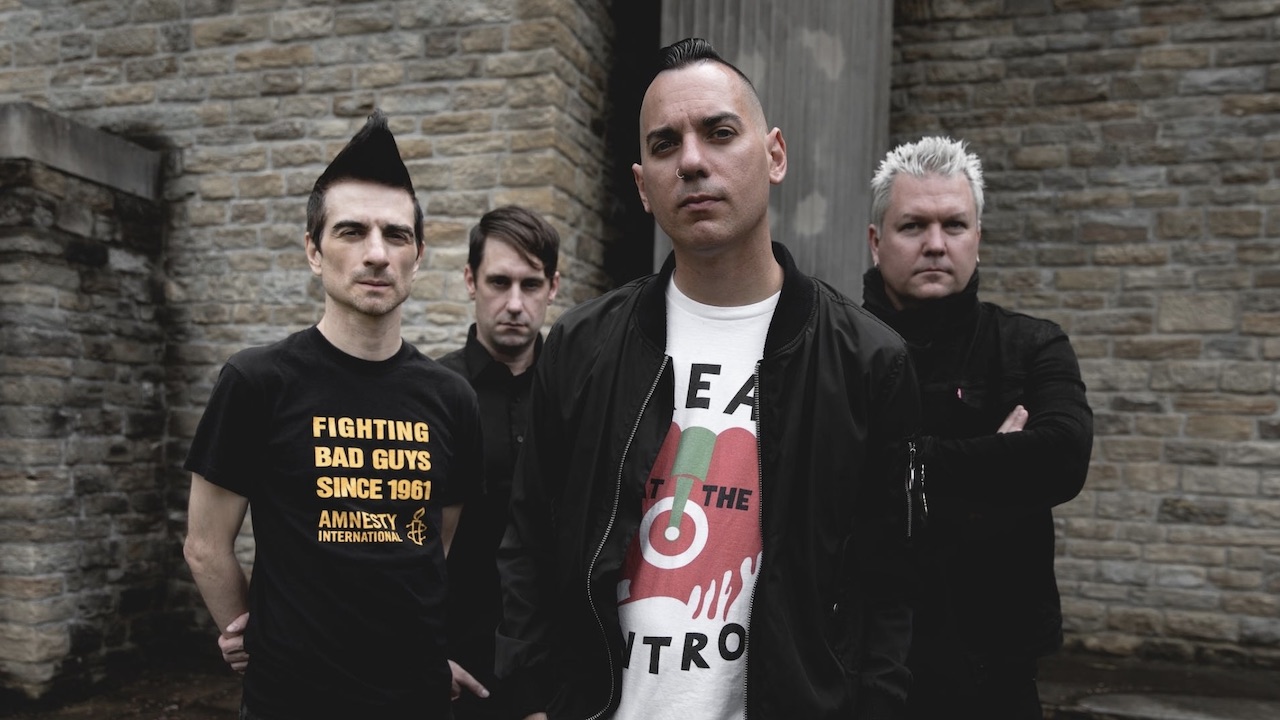
Anti-Flag frontman Justin Sane is being sued for sexual assault by a former fan whose allegations against the vocalist/guitarist led to the Pittsburgh, Pennsylvania punk quartet disbanding.
Kristina Sarhadi, a New York-based holistic therapist/health coach, appeared on the enough podcast in July to speak about an alleged sexual assault she suffered in 2010 at the hands of a prominent punk rock musician known as a champion of feminism, liberal causes and left-wing activism. Although Sarhadi did not identify the man in question, her detailed description of her ordeal led to suspicion falling upon Anti-Flag frontman Justin Sane (aka Justin Geever), and within hours, the Pittsburgh band announced that they were splitting
Geever subsequently issued a statement denying the allegation, insisting, "I have never engaged in a sexual relationship that was not consensual, nor have I ever been approached by a woman after a sexual encounter and been told I had in any way acted without her consent or violated her in any way." In the wake of his comments, 12 more women spoke to RollingStone.com about their own encounters with Greever, accusing the musician of predatory behaviour, sexual assault, and statutory rape. The article led Geever's former bandmates to issue a statement of their own, strongly condemning their former friend. “Fuck you for exploiting the work of the band and the many people associated with it for so long," they wrote. “As many predators do, it appears you used our beliefs as a cover for egregious activities that you clearly knew we would never condone.”
However, according to Rolling Stone, the lawsuit filed by Kristina Sarhadi extends to suing the band’s distribution company, of which guitarist Chris Head, bassist Chris Barker (aka Chris No. 2) and drummer Pat Thetic are registered members. The legal papers argue that Hardwork Distribution “should have known” about Geever’s alleged conduct and “had a duty of reasonable care to enact policies and procedures to protect fans.”
“Justin Geever used his platform as a celebrated, self-proclaimed ‘punk rock star’ to groom and lure vulnerable girls into feeling safe in his presence,” Sarhadi says in a statement. “While he sang about protecting women and standing up to abusers, it appears he was hiding an addiction to power and control, harming countless women who have been unable to speak up before now. Today I hope to encourage his survivors, and survivors of other predators in the music industry, to feel hope again.”
Talking to Rolling Stone, one of Sarhadi's attorney, Dr. Ann Olivarius, states, “I predict that in five years the music industry will be viewed the same way as the Catholic Church or the Boy Scouts - a powerful force that also enabled and shielded sexual predators for decades. Drugs, sex & rock ‘n roll’ was a reality that meant a lot of young women got abused. The bands had handlers who made it all happen and executives who covered it all up because so much money depended on it.”







